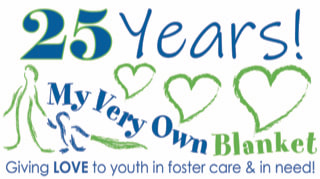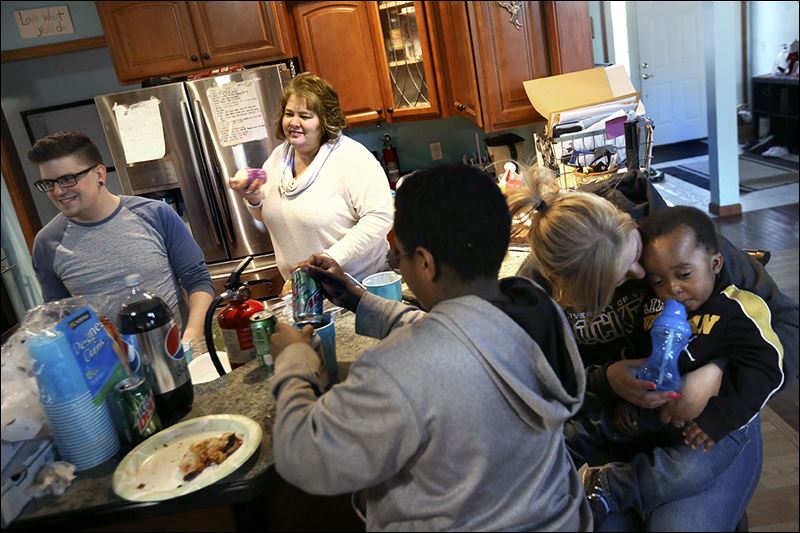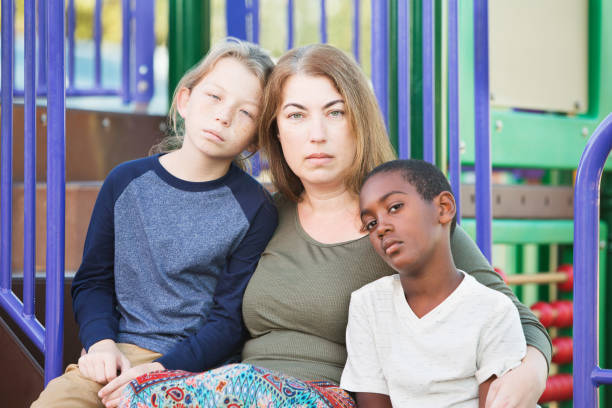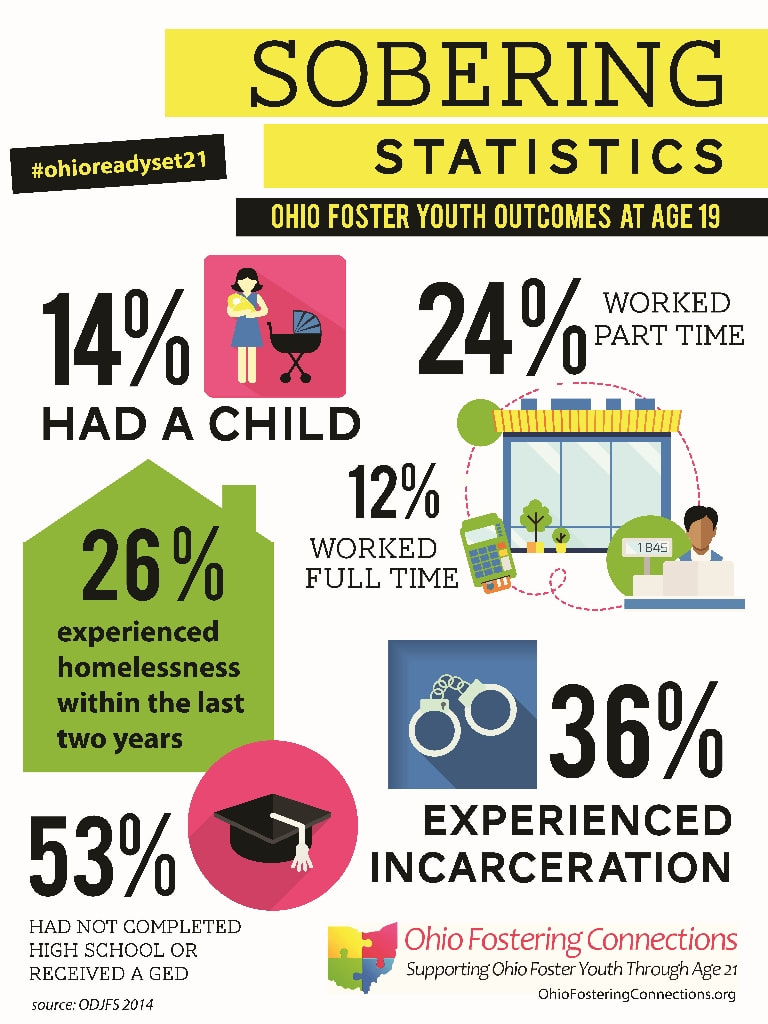She didn't know...
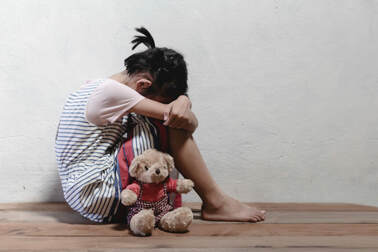
The police are called. Maybe for drugs, maybe for physical abuse, maybe for sexual abuse, maybe because of neglect. She's hearing this isn't the way it's supposed to be. It's all she's ever known - she didn't know.
She has to leave her home, family, pets, friends, and school with a CPS worker - she didn't know.
She's taken to an office - she didn't know.
She's asked a lot of questions - she didn't know.
They tell her they've found a new home for her - she didn't know.
She gets in a car for a long ride to a town - she didn't know.
Then she is introduced to a foster family - she didn't know.
Why does this house smell this way - she didn't know.
Who are these people - she didn't know.
Why am I here - she didn't know.
This is her new room and new bed - she didn't know.
There are new rules - she didn't know.
She starts a new school - she didn't know.
She eats new foods - she didn't know.
She goes to church - she didn't know.
She sees dentists/therapists/doctors/new caseworkers - she didn't know.
Then slowly or suddenly at some point - SHE KNOWS.
She knows you care about her.
She knows there will always be food.
She knows there is no violence.
She knows she is safe.
She knows what a normal routine looks like.
She knows she can do things she never thought she could.
She knows it's okay to be herself.
She knows there are people who care about her.
She knows she can go to sleep at night and everything will be okay.
YOU LOVE HER AND SHE KNOWS
-------------------------------------------------------------------
Thanks to MVOB Blanket Angel Rhonda, who shared this with us. Rhonda told us: This a post from my daughter - the person that got me interested in making blankets for foster children and since has adopted one of her foster kids. I am sure you have already seen it; however, it really makes me stop and think what these kids go thru.
She has to leave her home, family, pets, friends, and school with a CPS worker - she didn't know.
She's taken to an office - she didn't know.
She's asked a lot of questions - she didn't know.
They tell her they've found a new home for her - she didn't know.
She gets in a car for a long ride to a town - she didn't know.
Then she is introduced to a foster family - she didn't know.
Why does this house smell this way - she didn't know.
Who are these people - she didn't know.
Why am I here - she didn't know.
This is her new room and new bed - she didn't know.
There are new rules - she didn't know.
She starts a new school - she didn't know.
She eats new foods - she didn't know.
She goes to church - she didn't know.
She sees dentists/therapists/doctors/new caseworkers - she didn't know.
Then slowly or suddenly at some point - SHE KNOWS.
She knows you care about her.
She knows there will always be food.
She knows there is no violence.
She knows she is safe.
She knows what a normal routine looks like.
She knows she can do things she never thought she could.
She knows it's okay to be herself.
She knows there are people who care about her.
She knows she can go to sleep at night and everything will be okay.
YOU LOVE HER AND SHE KNOWS
-------------------------------------------------------------------
Thanks to MVOB Blanket Angel Rhonda, who shared this with us. Rhonda told us: This a post from my daughter - the person that got me interested in making blankets for foster children and since has adopted one of her foster kids. I am sure you have already seen it; however, it really makes me stop and think what these kids go thru.
Learn more about foster care
- There are more than 16,000 children currently in foster care in Ohio.
- More than 26,700 children were in foster care at some point in 2018, up nearly 3,184 since the previous report in 2016.
- The cost of placing children in foster care increased $53 million during those two years to $384 million.
- Ohio has only 7,200 licensed foster homes.
- About 100,000 grandparents, including 9,400 in Franklin County, are raising grandchildren. The number of children in kinship care has increased by 47 percent since 2016.
Statistics on Youth Aging Out of Foster Care
According to Casey Family Programs, about 25,000 young people between the ages of 18 and 21 must leave foster care each year. These young people have experienced maltreatment and have lived with instability. So it will probably come as no surprise that they are often ill prepared to suddenly live independently and figure out on their own how to do what the foster care system was set up to do for them—feed, clothe, and house them. Aging out of foster care without a permanent home is the highest-risk outcome for a foster youth.
Let’s take a look at some statistics:
• Approximately 25% of former foster youth nationwide reported that they had been homeless within 2 to 4 years of exiting foster care. (National Alliance to End Homelessness).
• Foster youth approach the transition to adulthood with significant educational deficits:
> They are 14 times more likely not to complete college than the general population (Chapin Hall Midwest Study).
> They are more than twice as likely not to have a high school diploma or GED as their peers (Chapin Hall Midwest Study).
• About 25% of foster care alumni experience post-traumatic stress (compared to 4% of the general population) (Northwest Foster Care Alumni Survey).
• The unemployment rate among foster care alumni was 47% (Chapin Hall Midwest Study).
• Youth in the system receive healthcare through Medicaid and are at risk of losing this coverage once they age out of care; only half of young adults leaving care have medical insurance (Chapin Hall Midwest Study).
• Thirty percent of youth participating in the Midwest Study reported being arrested; 15% reported being convicted of a crime; and 29% reported being incarcerated (Chapin Hall Midwest Study at Age 21).
From National CASA (Court-Appointed Special Advocates)
According to Casey Family Programs, about 25,000 young people between the ages of 18 and 21 must leave foster care each year. These young people have experienced maltreatment and have lived with instability. So it will probably come as no surprise that they are often ill prepared to suddenly live independently and figure out on their own how to do what the foster care system was set up to do for them—feed, clothe, and house them. Aging out of foster care without a permanent home is the highest-risk outcome for a foster youth.
Let’s take a look at some statistics:
• Approximately 25% of former foster youth nationwide reported that they had been homeless within 2 to 4 years of exiting foster care. (National Alliance to End Homelessness).
• Foster youth approach the transition to adulthood with significant educational deficits:
> They are 14 times more likely not to complete college than the general population (Chapin Hall Midwest Study).
> They are more than twice as likely not to have a high school diploma or GED as their peers (Chapin Hall Midwest Study).
• About 25% of foster care alumni experience post-traumatic stress (compared to 4% of the general population) (Northwest Foster Care Alumni Survey).
• The unemployment rate among foster care alumni was 47% (Chapin Hall Midwest Study).
• Youth in the system receive healthcare through Medicaid and are at risk of losing this coverage once they age out of care; only half of young adults leaving care have medical insurance (Chapin Hall Midwest Study).
• Thirty percent of youth participating in the Midwest Study reported being arrested; 15% reported being convicted of a crime; and 29% reported being incarcerated (Chapin Hall Midwest Study at Age 21).
From National CASA (Court-Appointed Special Advocates)
Some facts about youth who have "aged out" of foster care
About 25,000 youth age out of foster care in the U.S. annually. Within four years of aging out:
Source: www.ifoster.org/the-facts
- 70% will be on government assistance.
- 50% will be unemployed.
- Those who are employed make an average annual income of $7,500.
- 50% will experience homelessness.
- 25% will not have completed high school.
- Less than 12% will ever earn their college degree.
Source: www.ifoster.org/the-facts
Time doesn't heal wounds; action does
Story as shared on Facebook by a former foster youth
When I was in foster care, each Christmas I’d receive presents from a local charity. They’d ask what I wanted the most. I always wrote “to go back home to my mom.” ⠀
⠀
That never happened. ⠀
⠀
25 years later, I still live with the grief of not being able to grow up with my biological family. As an advocate, I feel it is my duty to share with you the truth. My truth. The truth that many foster children and alumni experience. It’s not my intent to guilt anyone but rather provide knowledge to better equip those who want to help.⠀
⠀
In our society, we have a difficult time talking about loss and grief in general. However, grief can be prolonged if people don’t get the support they need. I feel that foster children's grief isn’t recognized as it should be, mainly because of perception of a bio parent’s lifestyle or misperceptions about the child themselves. Therefore, the child’s grief is not seen as ‘worthy,’ leading to a lack of support or the thinking that ‘love is enough.’
⠀
For kids in care, loss and grief can cause shame, isolation and this terrible feeling that somehow you’re ‘different.’ You feel embarrassed because it’s publicly known your family couldn’t care for you. It’s a profound sense of loneliness. I wouldn’t wish it on anyone. ⠀
⠀
You don’t get over it—you live with it. Holidays and major life events can be triggers. When I got married I was excited to make a home with my husband. Yet I was sad because I was reminded that I never went home as a child.
⠀
Although I experienced these feelings, it was because of my faith and compassionate, loving friends that I’m here today. Because of my experience, I don’t take my life for granted. I live my life to the fullest.⠀
⠀
However, I think of the foster kids and alumni who are in the midst of their grief and are having a hard time coping. We can’t all be foster parents. However, we can offer acceptance and be there in our respective roles. A hello, social invitation, and a listening ear do wonders. Time doesn’t heal wounds—action does.
Story as shared on Facebook by a former foster youth
When I was in foster care, each Christmas I’d receive presents from a local charity. They’d ask what I wanted the most. I always wrote “to go back home to my mom.” ⠀
⠀
That never happened. ⠀
⠀
25 years later, I still live with the grief of not being able to grow up with my biological family. As an advocate, I feel it is my duty to share with you the truth. My truth. The truth that many foster children and alumni experience. It’s not my intent to guilt anyone but rather provide knowledge to better equip those who want to help.⠀
⠀
In our society, we have a difficult time talking about loss and grief in general. However, grief can be prolonged if people don’t get the support they need. I feel that foster children's grief isn’t recognized as it should be, mainly because of perception of a bio parent’s lifestyle or misperceptions about the child themselves. Therefore, the child’s grief is not seen as ‘worthy,’ leading to a lack of support or the thinking that ‘love is enough.’
⠀
For kids in care, loss and grief can cause shame, isolation and this terrible feeling that somehow you’re ‘different.’ You feel embarrassed because it’s publicly known your family couldn’t care for you. It’s a profound sense of loneliness. I wouldn’t wish it on anyone. ⠀
⠀
You don’t get over it—you live with it. Holidays and major life events can be triggers. When I got married I was excited to make a home with my husband. Yet I was sad because I was reminded that I never went home as a child.
⠀
Although I experienced these feelings, it was because of my faith and compassionate, loving friends that I’m here today. Because of my experience, I don’t take my life for granted. I live my life to the fullest.⠀
⠀
However, I think of the foster kids and alumni who are in the midst of their grief and are having a hard time coping. We can’t all be foster parents. However, we can offer acceptance and be there in our respective roles. A hello, social invitation, and a listening ear do wonders. Time doesn’t heal wounds—action does.
Join Our Mailing List
For Email Marketing you can
trust.
HoursMonday - Friday: 9 am - Noon
Closed Saturday and Sunday |
Address |
Telephone |
|
My Very Own Blanket is a 501(c)(3) charitable organization. Tax ID 90-0198206 MVOB Privacy Policy
Thank you for your donation to support MVOB's mission to provide handmade blankets to children in foster care and children in need.
No goods or services are provided in exchange for contributions to My Very Own Blanket.
Thank you for your donation to support MVOB's mission to provide handmade blankets to children in foster care and children in need.
No goods or services are provided in exchange for contributions to My Very Own Blanket.
